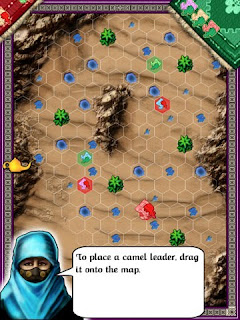The iPad has already proven that it isn’t just good at videogame adaptations of board games, it is the new format of choice for board games. From the classics, such as Monopoly, Risk and Scrabble, through to the new wave of Eurogames, such as
 |
| This nice lady will show you how to play the game. |
 |
| This is the board game… |
 |
| This is the iPad game. As you can see, there is much less mess to clean up once the game is over. |







